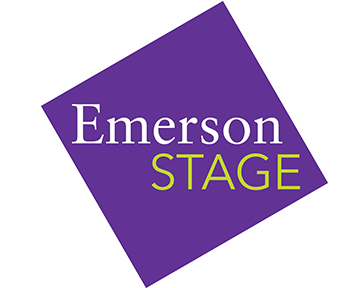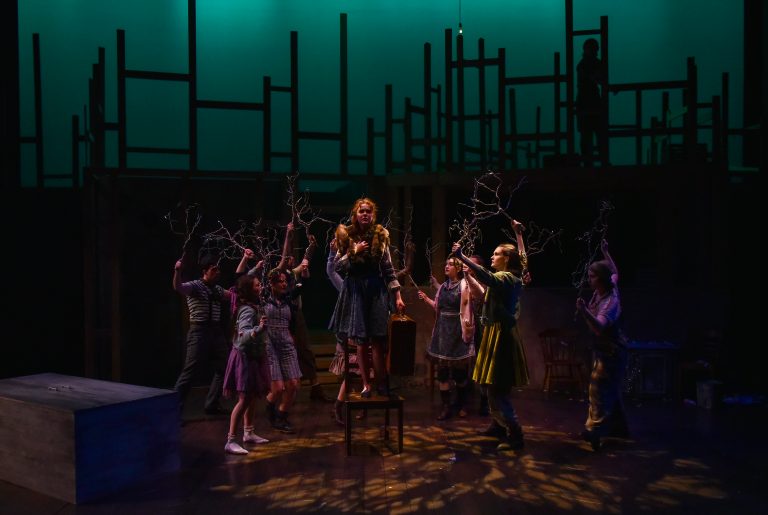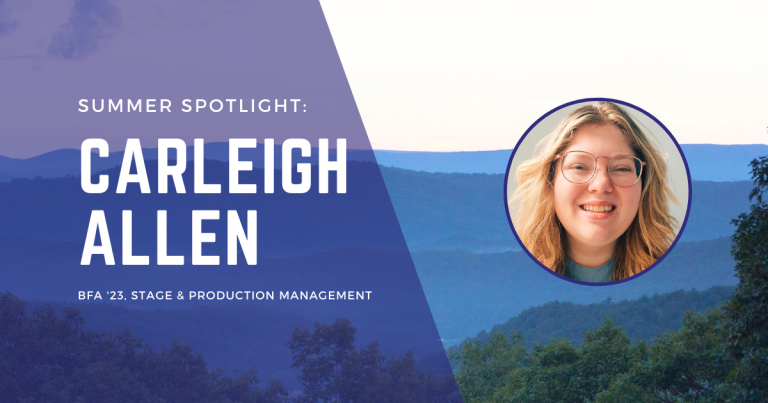Stefanie Zadravec: A “Write-What-You-Don’t-Know” Playwright
By Victoria Brancazio
Dramaturg, Tiny Houses
Emerson Stage’s NewFest New Play Workshop presents Tiny Houses, a play following the 2014 MH17 plane crash where three women find hope and agency amongst chaos. I sat down with playwright Stefanie Zadravec about the process of writing Tiny Houses and working with Emerson Stage.
Victoria Brancazio: What did you notice appear in the play that you didn’t intend to be there?
Stefanie Zadravec: I began the play after seeing a photo of a woman showing where a body fell through the shed in her back yard. That tiny space was so vivid and I ‘saw’ Yevhenia talking to the leg in her shed. I had no idea about the airport scenes or that we would meet some of the people who were on the plane. However, as I wrote those scenes, the other people in the airport (not who get onto flight MH 17) developed into actual characters (Mandy, Kyle) and at some point I realized that if we’re going to spend this much time getting to know them, they too need to be in the play. I try to stay open when a play expands outside my original idea. In this case, it became a vehicle from which I could show the impact of a person’s life, big or small, on someone else. At some point I knew I wanted Yevhenia to get to that clean, modern airport but no clear answer as to why, but I knew it had something to do with the women finding agency.
Also, the end of the play was nothing I imagined when I began. Kip Fagan and I did a reading about year ago with New York Stage & Film of the very first draft. At that point the play ended with Mandy, the American off to do good in the world, and it felt really wrong – Too neat. Like this whole journey happens and then we’re supposed to feel good that they American is off doing good in the world. Last summer I workshopped the play Jaw Fest T Portland Stage. There the end of the play shifted the to Susannah. By then I’d trickled in new details of her life, that she has mental illness, and a sadness. Leaving the play with a girl struggling after losing her father in this big public tragedy, just felt right. It was simple and subtle and very much within the them of ordinary people in extraordinary circumstances.
VB: How did you start writing Tiny Houses?
SZ: I heard about the crash in on the radio, right when it happened in 2014. I was so struck by the idea that no one could get in to deal with the crash because of the war that was going on in Donetsk (Eastern Ukraine). However I was in the middle of trying to finish two overdue commissions, and didn’t have the chance to even start working on it until the spring or summer of 2015, which was hard, because the play I was writing was long and heavy – and I could feel the humor and the music of this play bubbling up. In every way that the other play was hard, and stuck – I knew that my voice as a writer lay in this play – the story-weaving, the hope, the humanity – and I was dying to get started on it. When I did, it was like, reclaiming my joy in writing
VB: How has working with Emerson Stage and with Kip Fagan helped you develop this play?
SZ: First of all, everyone has been so lovely and so patient with me. I’m currently undergoing chemotherapy for cancer, and I’ve not been my normal around-the-clock writer. In general I hear my plays. Which is also what happens in a staged reading. You hear it. But that doesn’t mean everything will work in a production. When a play nears the end, I’ll Sometimes spend hours changing a word or punctuation mark. I can hear when actors are pushing against what’s on the page –
VB: The music.
SZ: Yeah! But I very rarely see how my plays will look. It’s all aural for me, so I am dependent on designers and a director to show me how the story unfolds. So working with a director and working three-dimensionally, like we’re doing, I learn so much. I could rewrite the play right now, based on everything I’ve learned and you can bet there will be another draft written as soon as I get back to Brooklyn. Because there isn’t a preview period with this workshop, we have to be mindful of how much the actors and designers can switch up when they’re just adjusting to costumes and tech cues. I have left some things in the script, that I know will not stay in the final draft. But that’s incredible information to have. Kip and I have had some incredible discussions about the script. Kip is really clear about what is excess in a script. I love that. He’s direct and smart and I feel so lucky to be working on this again with him. Finding a director with dramaturgical chops and one who has staged and created such wonderful stuff on stage is gold. To get honest and practical notes are for a writer what practical and expansive notes are to an actor. The ones that unlock things for you.
At Emerson, our goal was to discover the airport scenes. They are choreographed and choral. With so many people talking it’s really hard to get the balance right. Since I’ve been here, I’ve tried to articulate what I thought they would be, and I’ve also learned so much more about what they will eventually be. During the tech run through I was still making script changes, but some of those will have to wait. It’s so exciting to see the airport scenes- even if they’re not right, to just learn what they need to be.
In general, I’m a big fan of workshopping plays on your feet. There’s a program, Playground, at the Lark in New York. I workshopped the very first scenes of this play there. They have three or four writers and you’re there for a semester. You meet like six times, bringing in about twenty brand new pages. There are four director who rotate, so you don’t get the same director every time. And they pick up your twenty pages, hand them out to actors, stage it on the spot, and you hear and see and learn all at once. I remember having written the first airport scene thinking “Is this even possible?” but I brought it in one week and [the director] created the airport and I was like, “Oh, this could work.” To see someone start to play with the movement — I love that.
VB: What got you started with playwriting? When did you start, how did you start, did it find you?
SZ: It found me. I was working as an actor, but I wasn’t working enough. My acting career always had these lags. And even when I did work, it didn’t always feel like a use of my talent. In the year after 9/11 there was even less work, so that summer I took a playwriting class. After the very first class— we just had to bring in ten pages of dialogue – the teacher pulled me aside and said, “I know you think you’re an actor but you’re really a writer…What you brought in with your dialogue, how you conveyed history, character, Subtext while the characters feel like they’re just talking. — that is to writing what comic timing is to acting. I can teach you plot and structure, but I cannot teach that.”
I’d written and performed some monologues. And I used to be the person who’d write a parody for the closing night party. When I got into writing, my friends were like, “yeah, you’ve always been a writer.” Apparently everyone around me thought of me as a writer and I didn’t have a clue. Perhaps because my parents were writers I just went in another direction. My mother was a poet and my father was a journalist. My grandfather and uncle were journalists too. So not only am I writer but I can see now how my plays are a combination of the journalist and the poet. It was destined.
My breakout play was Honey Brown Eyes, about the war in Bosnia. In writing about something I never experienced in a country I’d never been to — it was all based on research — something really opened up with my writing. It was really alive. I wrote more theatrically, and I discovered that I wrote more boldly when I wrote from my imagination. There’s tons of stuff in that play that I experienced — there’s tons of stuff in this play that happened to my mother and to me — but I weave it all together outside of myself. I say I’m a “write what you don’t know” writer.
VB: What do you see from your own life in Tiny Houses?
SZ: For me, plays aren’t just about people making choices, they’re about people making the wrong and dealing with the consequences of that. Plays deal big questions and the big problems of our times, I’m drawn to those, but tell stories about how those vents effect ordinary people. People who aren’t the instigators or the insiders, because that’s where most of us find ourselves. Also, the women in my play are flawed and funny and cranky. That’s definitely something I draw directly from my own life and the women I know. I’m always urging the actors playing my women not to worry about being liked. Embrace being narrow minded, or opinionated or cruel, and trust that the journey your character is on, will reveal your goodness. I think it’s that — I think that part of myself, of saying outrageous things and doing outrageous things and being wrong, that goes into the characters. It’s also so fun to create female characters who do things and say things that I would never get to do or say—it’s why we love the villains in plays and movies, why we find them sexy. I love Paulina’s demanding quality, Yevhenia’s superstition, and the fact that Suzanna is a huge mess. They’re all nuts, but then they’re also all not nuts. They’re also survivors. And they’re smart and have agency. Susanna is putting together a funeral by herself and no one supporting her. It’s heartbreaking. Paulina has fled her abusive boyfriend and brought her baby’s grandmother along. And Yevhenia just left the place she’s lived her whole life, to be in Amsterdam. I think that’s extraordinary and brave. Bravery never looks like it does in the movies. It’s clumsier than that.



